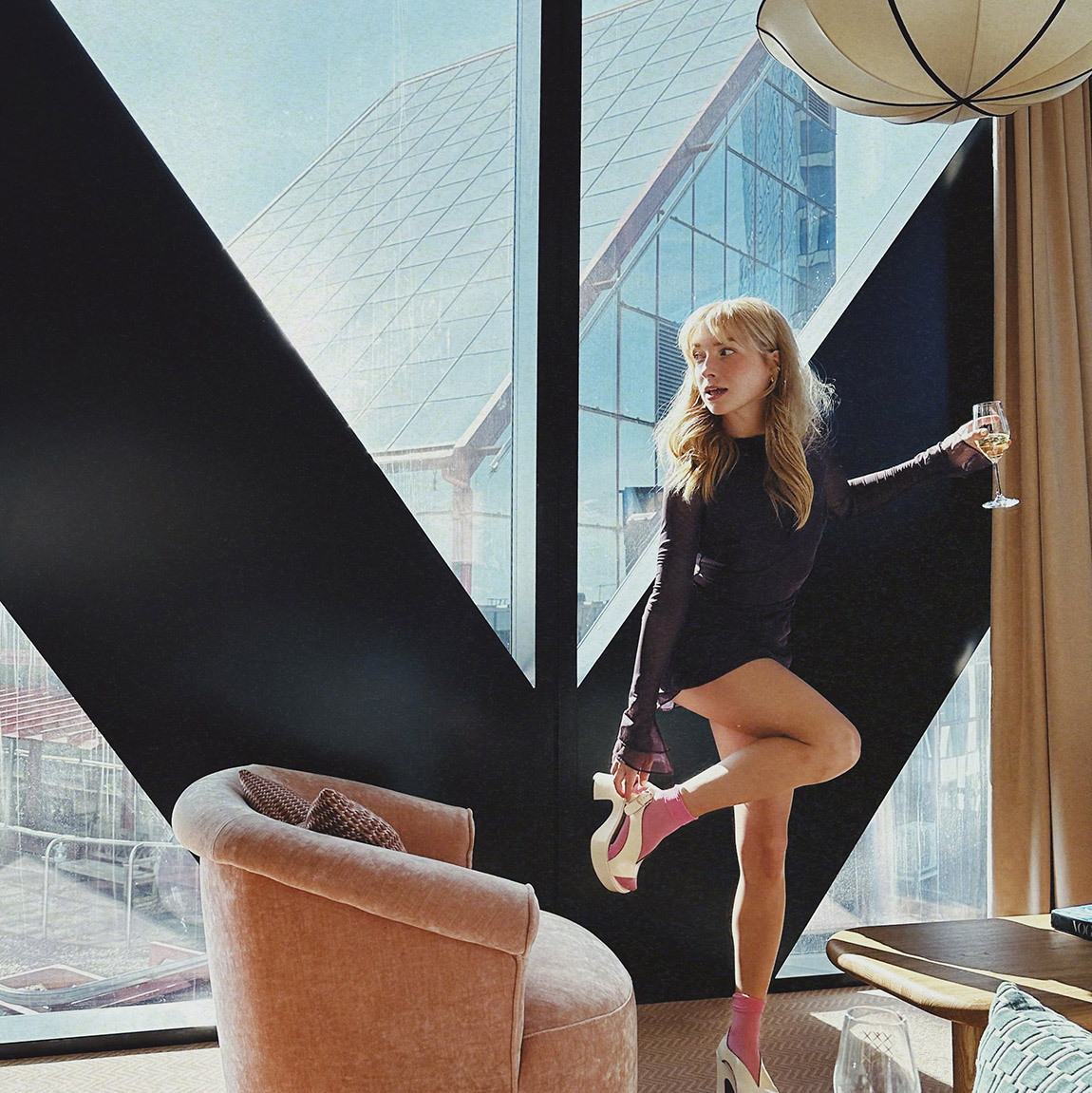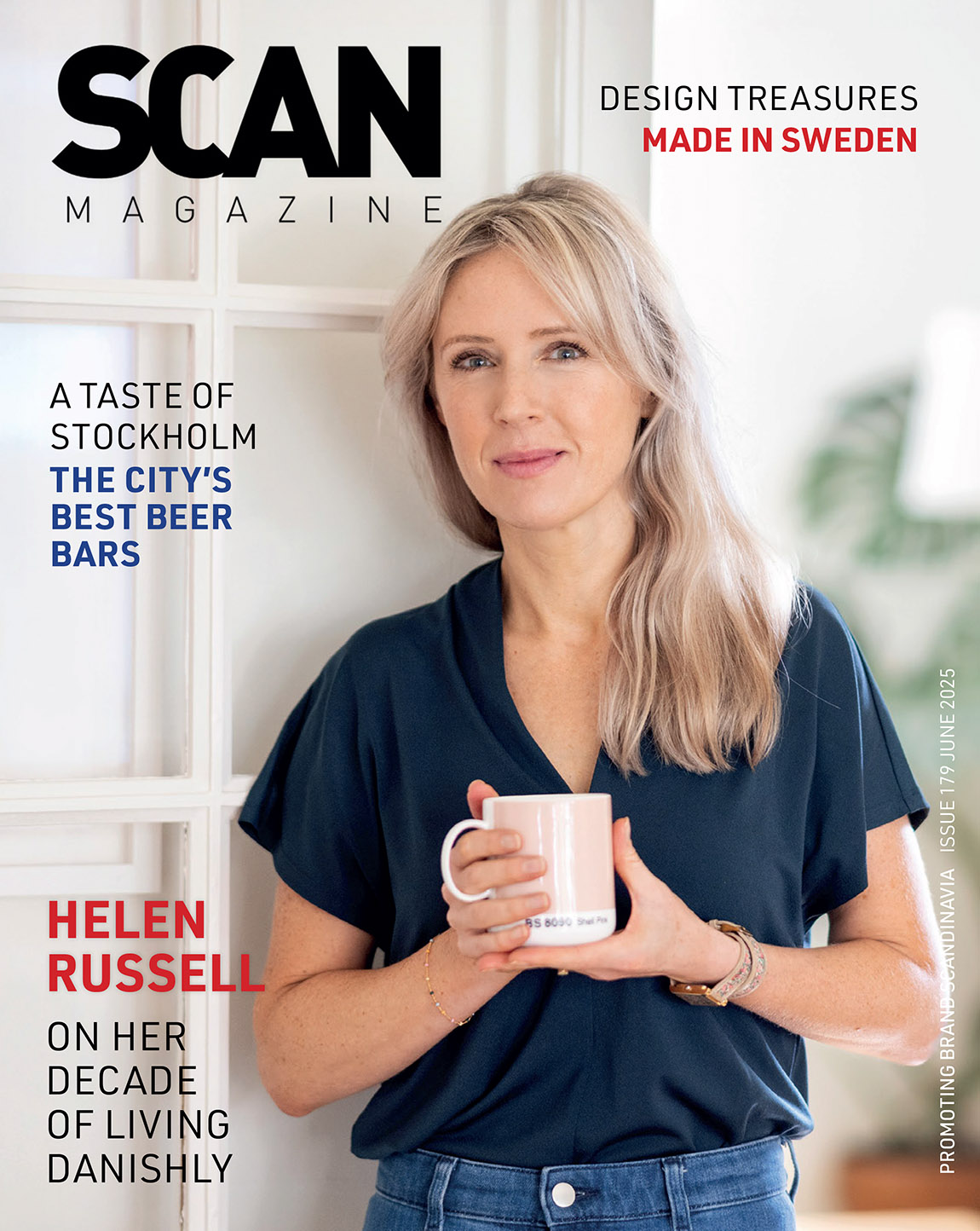BENT HAMER “LET ME TELL YOU A STORY”
By Paula Hammond | Photos: Bent Hamer
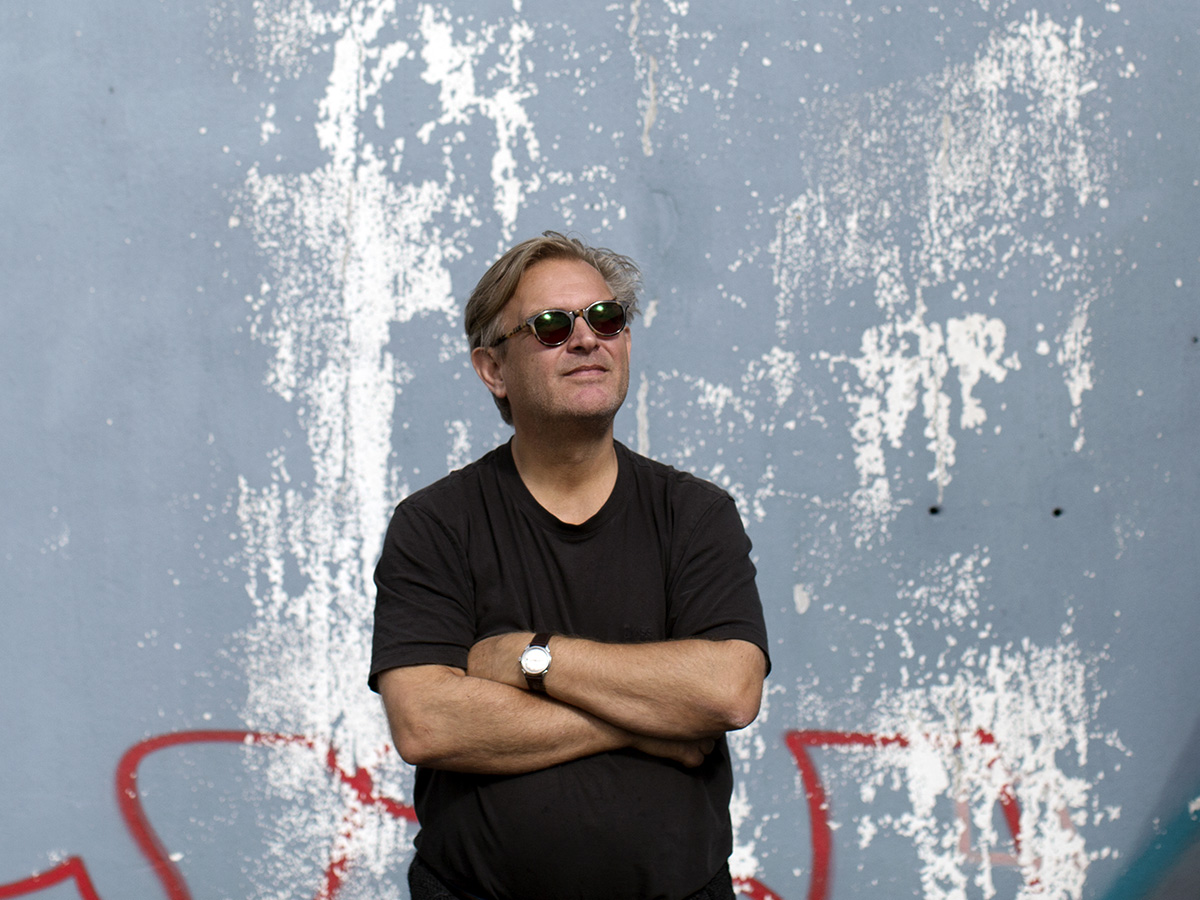
For Norwegian writer and director Bent Hamer, the inspiration to enter what many see as a rarefied business came from that most human of experiences – storytelling. “That’s the short answer,” he says. “My grandmother told me stories – you’ve probably heard that before – but it’s absolutely true.”
As a kid, Hamer’s passion was football. “I had quite a normal upbringing” he recalls. “I didn’t know any directors or writers. Actually, I was really into sport. I played football and I would ski-jump in the winter. I liked to read, go to the movies, and then TV came along. But I liked fairytales and storytelling too. Part of my first film Eggs was built to honour the memory of my grandparents who told me stories.”
Eggs garnered public and industry praise in equal measure. However, while awards may be helpful in helping to finance a film, for Hamer the important thing is staying true to himself, no matter whether there is commercial pressure.
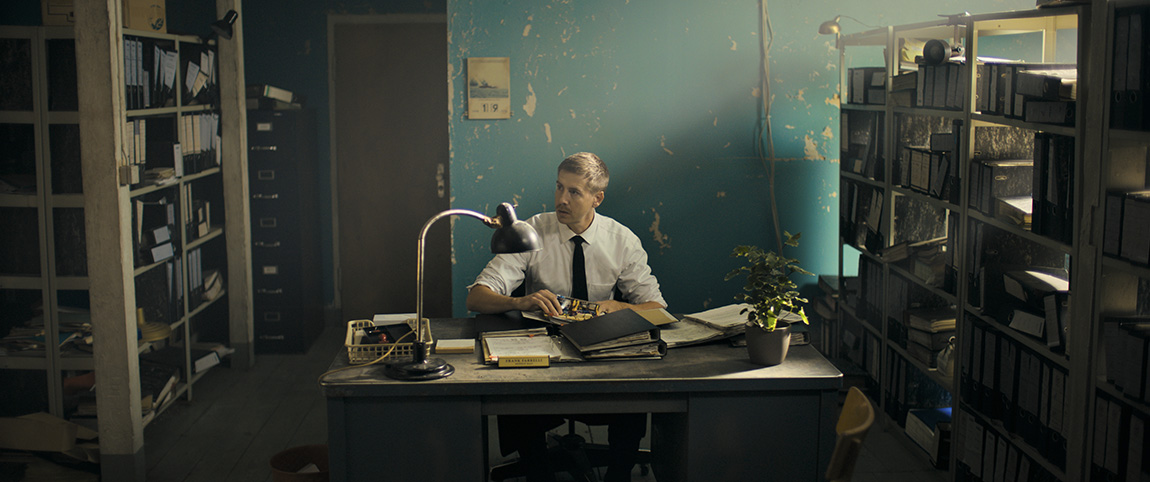
Still from The Middle Man. Photo: courtesy of Sovereign Films
“Of course it was a shock. And it definitely helps, in a way, to be recognised early in your career. I had made a bunch of short films before that and had actually won national prizes in Norway for them. But it didn’t change the stories I wanted to tell or how I told them. I didn’t feel any pressure to keep making similar films. Maybe I should’ve felt that, but I didn’t.”
Since Eggs, Hamer’s work has continued to receive plaudits, with his 2005 French-Norwegian comedy Factotum earning him an Oscar nomination for Best Director. Factotum is a noir-esque tale based on the works of Charles Bukowski and exploring the poet’s uncompromising life through the lens of Hamer’s absurdist humour. The result is surreal, sobering and unforgettable.
The Middle Man, which received its cinematic release in 2021, is Hamer’s eighth feature film. Like Factotum, it is another slice of Americana.
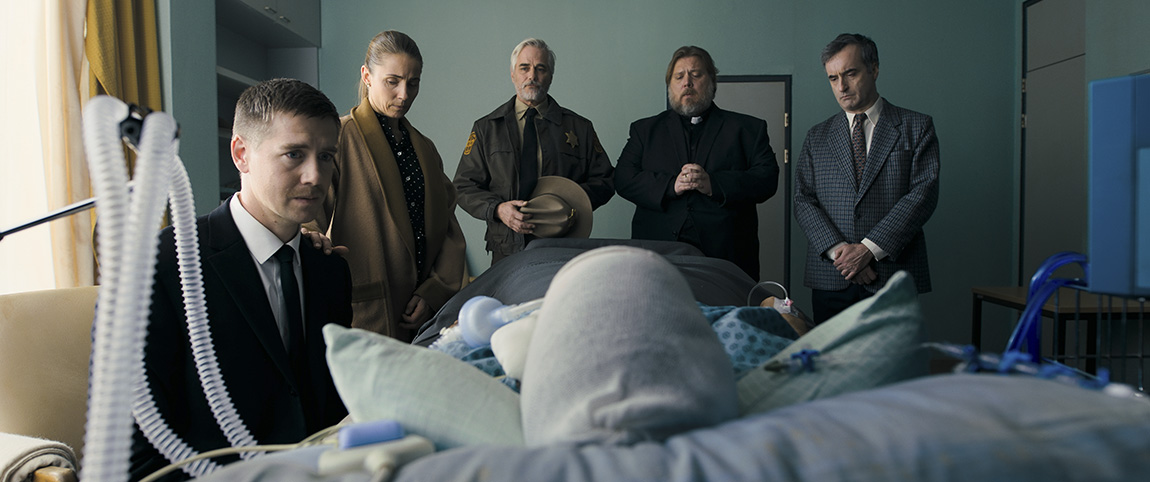
Still from The Middle Man. Photo: courtesy of Sovereign Films
A dream turned nightmare
The Middle Man is set in the fictional town of Karmack, deep in the Rust Belt, where the American Dream has turned into a nightmare. The town is so plagued by accidents and economic woes, that the local council have decided to hire a middle man to break bad news to its citizens.
Featuring a superb performance by Pål Sverre Hagen as the titular character, the supporting cast includes Aksel Hennie, Nicolas Bro, Rossif Sutherland, Don McKellar and Due South’s Paul Gross, who gives a terrific performance as the town sheriff. With a hint of the Coen brothers’ Fargo, and a uniquely European-American flavour of its own, The Middle Man is a hard film to put in a box.
“Obviously the book Sluk inspired me. My wife read it first and recommended it. I liked it immediately and I wanted to make a film. I thought it represented more than just the small Rust Belt towns that have lost everything, and the people who live there. A lot of Europeans, especially young people now, have no jobs or prospects of leaving home so it has a kind of universal background. That interested me.”
“I also liked the fact that it’s a strange story. You really don’t know what’s happening. And, actually, the book is darker than the film. When I came to the end, I shot it so that I could choose two endings – and I chose the lighter one. I’m old enough now to offer a little hope at the end of the tunnel! The author was actually very happy with that, and said that’s the way he should’ve done it.”
The film is full of fascinating characters and symbolism, and Hagen’s middle man, Frank, makes for a compelling focal figure. But is he the hero or the villain? “We talked a lot about who Frank is with the actors, trying to put a label on the character. We agreed upon trying to leave a lot of it as a mystery. That’s a bit risky in that it maybe demands more from an audience, but it’s the way I like to tell stories. I’ve been asked so many times if the ending is really happening. If you ask me straight up, I’d say it does happen … but, then, we use this song by Radiohead which includes the line ‘this is not happening’, so it’s really up to the audience.”
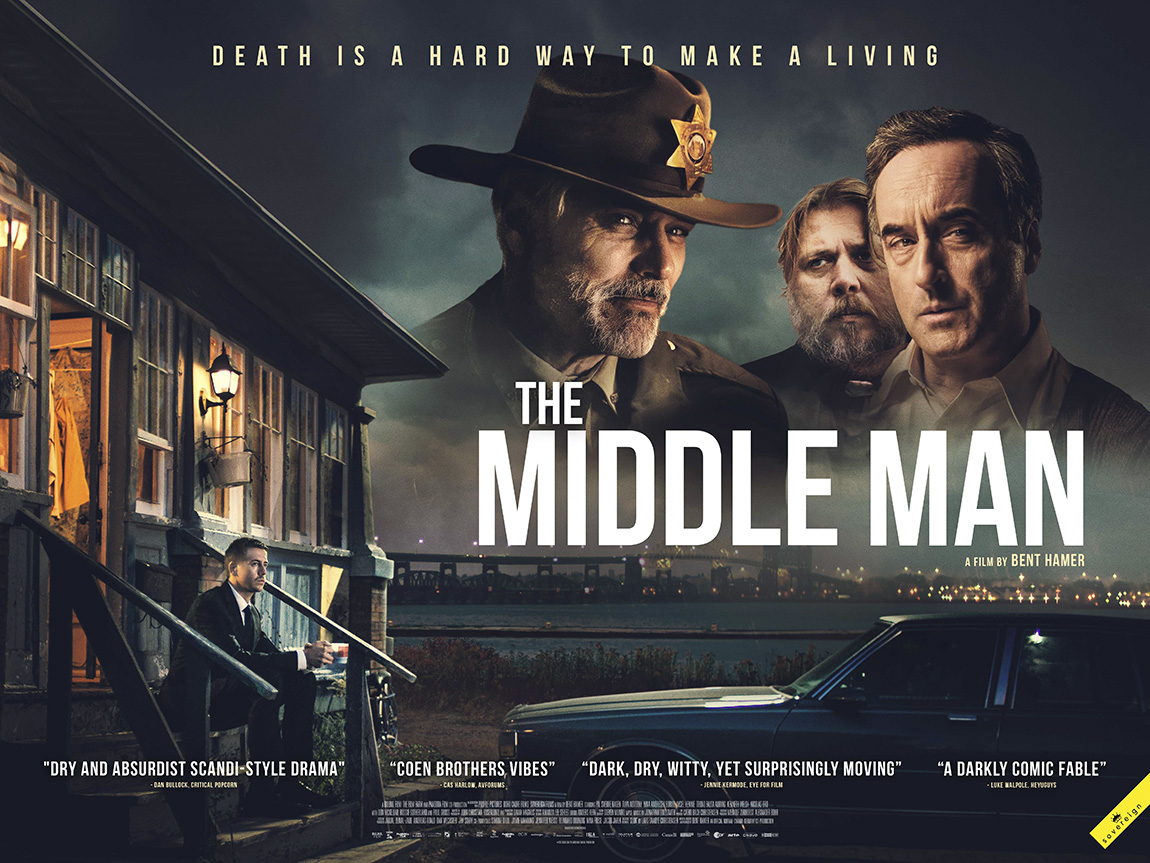
Photo: Sovereign Films
Breaking free
A recurring theme in Hamer’s work is people trapped in lives of numbing routine, finding something extraordinary that helps them break free. “I always like to put ordinary people in these situations then let something grow out of that,” he explains. There are also questions like what is fate, what is coincidence, what is planned? Of course, we have a choice all the time, but it can still feel that we really don’t.”
Has Hamer himself ever found himself in a similar situation to his characters – breaking away from the everyday to do something unexpected? “Well,” he laughs ,“I’m certainly reaching the age where it’s expected of me! But, no. I’ve done what I’ve always wanted to do. I think I feel quite free.”
Like Factotum, The Middle Man, is set in the US, although it was filmed in Sault Ste. Marie, Ontario. “I tried to see if it was possible to shoot in the US, but it’s a nightmare unless you have Tom Cruise in every part!” he says. Ireland and Norway were also possibilities, but that would have meant changing the dialogue too much. For me, the troika of the sheriff, the doctor, and the priest was central. I didn’t want to lose that.”
Despite its setting, Hamer explains that he doesn’t have an especially strong urge to make American movies, or jump onto the blockbuster bandwagon. “With The Middle Man, I just followed the story. Of course, all of us filmmakers like to imagine we can make a James Bond if they asked us to. But I prefer British films. The way the British make thrillers is very interesting. They’re not those films when one third of it is driving a car. That’s not my thing – but the other way around is great. That’s an interesting pace.”
When Scan caught up with Hamer, he was in Paris, desperately trying to ignore the attractions of the City of Light and get some work done. “I’m trying pressure myself to deliver a final script but there are lots of very nice distractions here… so we’ll see!” he says. Whatever the outcome, there’s certain to be a great story at the end of it.
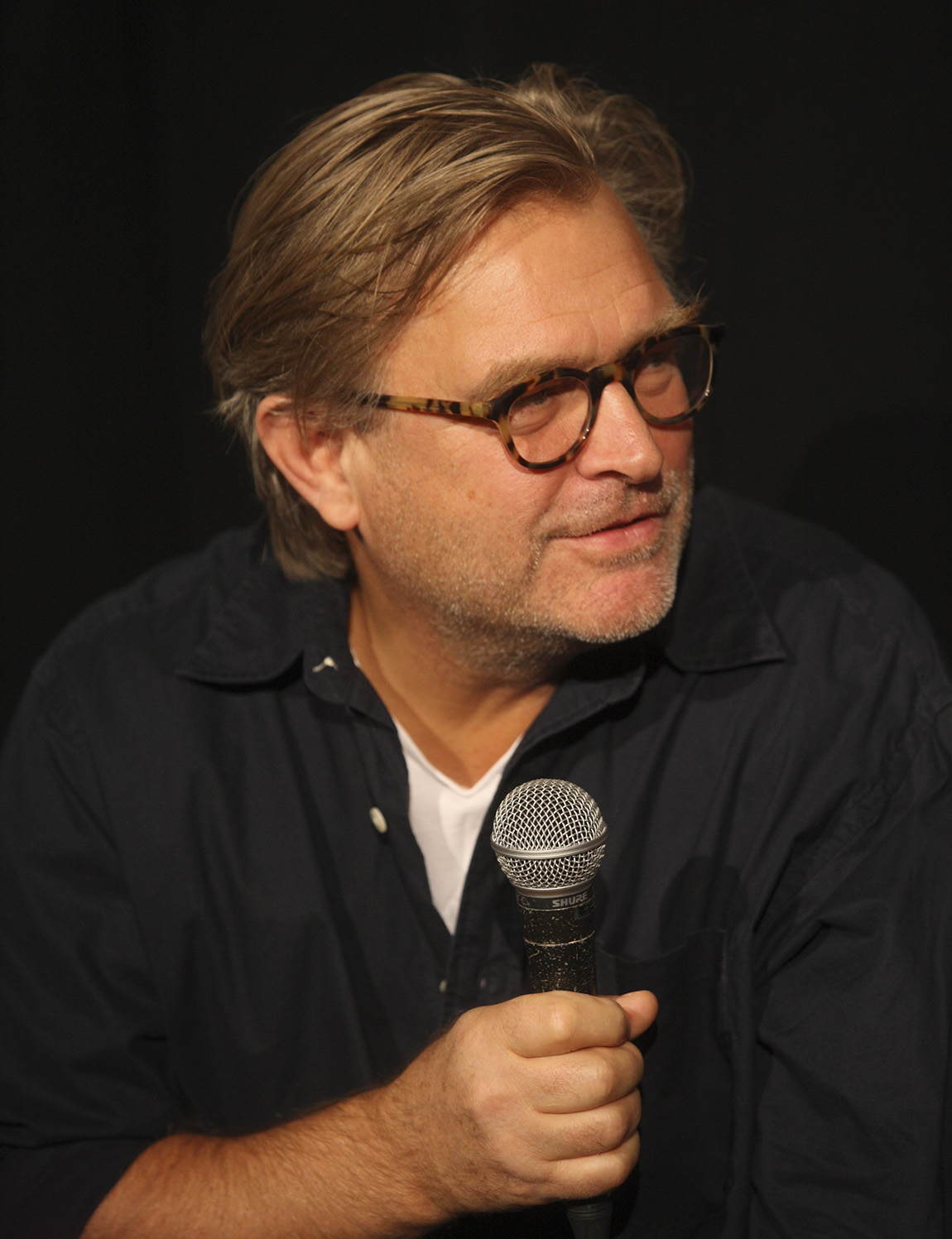
Subscribe to Our Newsletter
Receive our monthly newsletter by email



